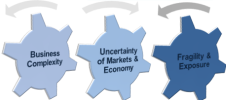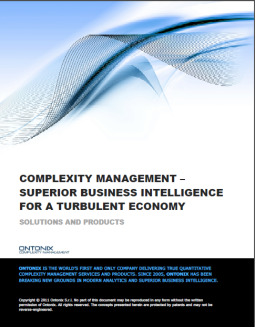Insurance: working with or against nature
Thursday, 13 October, 2011 Leave a comment

Image via Wikipedia
“Organic growth” is a phrase widely used…particularly by people who tend to demonstrate that they have little understanding of its meaning!
Sustainable growth of any crop is dependent upon a multitude of factors, not least of all, the environment. Regional climates are such that a skilled practitioner can plant, cultivate and harvest according to the natural growth cycle. They, literally, cannot uproot and carry on elsewhere in the event that circumstances outwith their control blight their harvest.
Thankfully the insurance industry does not suffer like this! But there are similarities…some that are “overlooked” by leaders because they conflict their hopeful forecasts!
We are bound by cycles, annual or longer. Bad seeds will not flourish, no matter how good the ground and they can deprive healthy seeds of the care and nourishment required to nurture healthy crops. In some instances diversification or acquisition of more mature plants may shorten a cycle but at what price?: initial cost and demand upon additional resource. Unless we are suitably prepared, our livelihoods can still suffer as a result of sudden or unforeseen changes in the local, regional or global (economic) climate; new market entrants; supply/demand or logistics issues. If demand isn’t increasing, banking on scarcity to bring about a price rise is a risky strategy.
Our crops may not fail but dependence upon “yields”, that are subject to factors outwith our control – simply because the post-war economic climate has been relatively benign – is a dangerous assumption. The long range weather forecast makes for a pretty bleak outlook and risky strategies appear to be very fragile.
But this is a harsh commercial world! For farmers, for insurance and every industry. Business leaders ought to learn lessons from nature.
Pursuit of unsustainable returns to cover increased overheads (and funding debt) can lead to poor seed or crop selection and over-farming: more artificial nutrients (perhaps genetically modified); more labour intensive. The excessive demand upon finite resources – in particular human resources – will have a negative impact upon morale and product quality. Growth, “yes”, organic, “no”!
Isn’t it ironic that farming is referred to as “honest work”!?


 Defy nature and it obliterates the human species. The more we divorce ourselves from nature, the more we permit the natural world to be exploited and polluted by corporations for profit, the more estranged we become from the essence of life. Corporate systems, which grow our food and ship it across country in trucks, which drill deep into the ocean to extract diminishing fossil fuels and send container ships to bring us piles of electronics and cloths from China, have created fragile, unsustainable man-made infrastructures that will collapse.
Defy nature and it obliterates the human species. The more we divorce ourselves from nature, the more we permit the natural world to be exploited and polluted by corporations for profit, the more estranged we become from the essence of life. Corporate systems, which grow our food and ship it across country in trucks, which drill deep into the ocean to extract diminishing fossil fuels and send container ships to bring us piles of electronics and cloths from China, have created fragile, unsustainable man-made infrastructures that will collapse. 










